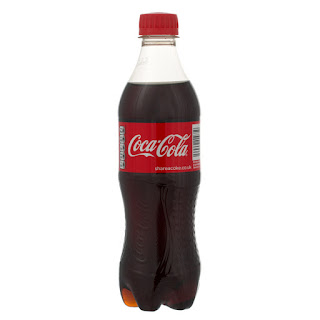Sponsorship, Coca-Cola, McDonald’s, WHO and unhealthy foods
The most popular brand in the world is Coca-Cola, among the
first words in the vocabulary of most of the world’s children. They recognise
the logo before age 2, and crave the drink fervently not long after. Coca-Cola
is to be found in every country of the world and has become a synonym for pop,
sodas or non-alcoholic beverages.
In the same vein, McDonald’s is the world’s largest fast-food
company, and brand of choice to over half of the planet’s on-the-move eaters,
serving over 75 million meals per day worldwide, a venture for which it is worth
over $90b. The brand has undoubtedly, also assisted in ensuring that a third of
the American society is obese.
Both names are united in the unwholesomeness of their exceedingly
popular brands. Consumers and health watchers had long been suspicious of the
ingredients in the McDonald’s buns as well as the excessive sugar and salt
which may lead to diabetes and high blood pressure. The calories packed in each
Big Mac meal and artificial flavouring is cause for concern; and of course, preservatives,
additives and derivatives are equally harmful to health.
Medical practitioners assert that the factory-farmed and antibiotic-pumped
poultry and livestock could be very dangerous to gastro intestines, let alone
the less than ethical processing and processes.
The recipe of Coca-Cola remains one of the world’s best kept
secrets, but not so the harmful effects of the consumption of the drink. While
the high level of sugar in Coca-Cola may lead to diabetes, and the high level
of calories therein may lead to obesity, both can ensure significant harm to teeth
and bones. The sucrose in Coca-Cola causes dental caries and obesity is caused
by the high calories therein.
Mass marketing fuels consumption and intense consumption may
lead to the destruction of the kidneys. Convenient and cheap, junk food options
are always a health risk. And our children are constantly exposed to marketing
and promotions from around the world while opportunities for parental guidance
are thinning, especially with increasing links of these top brands to sports
sponsorship and in-school marketing.
Despite the health hazards of the Coca-Cola and McDonald’s brands,
international events and rights holders still defer to them for sponsorship, in
the full glare and apparent acquiescence of the World Health Organisation. Both
brands are in the forefront of Sponsorship for the Olympics and the FIFA World
Cup, amongst other Sporting activities, including Baseball, Basketball,
Cricket, Hockey and American Football.
So, you might want to ask why healthy Sponsorship is more
important than unhealthy foods; or why event owners still rush to, and accept
funding from Coca-Cola and McDonald’s, despite the dark side of their brands.
Big events cost big money, and international Sporting events
can cost between $10b and $40b. The IOC needs money, FIFA needs money, and so
do several other international Sports bodies. The end justifies the means. It
is easier to see what environmental degradation occurs when you clear trees to
build a stadium, than see when you feed innocent consumers with unhealthy foods
so you could help make an event happen.
Well, it is also easy to posit the economic catalyst putting
money into an event can be. Let us not forget however, that Sponsorship is not
altruism, but an integral part of the marketing communication process. It is a
marketing function, in which Sponsors anticipate some benefits and hope to
fulfill a set of objectives, all which are known to the marketing teams,
departments and agencies.
On the unhealthy foods these healthy sponsors offer, the World
Health Organisation had implored member nations “to work with stakeholders to
put in place ‘a framework for promoting the responsible marketing of foods and
non-alcoholic beverages to children’, in order to reduce the impact of foods
high in saturated fats, fatty acids, free sugars or salt”.
Yet, the WHO and UNICEF look away when Coca-Cola and McDonald’s
do marketing and advertising, when they send messages influencing our children
to get addicted to their unhealthy offerings. Even top advertising agencies and
indeed, practice regulators aren’t doing enough to help, preferring to focus on
the bottom line. But sponsorship fees, activation and advertising are money
spinners, oiling economic wheels and providing employment, satisfying needs;
and the cycle continues, to rationalise the practice.
-Dele Dele-Olukoju
Picture Credit: Google Images







Comments
Post a Comment